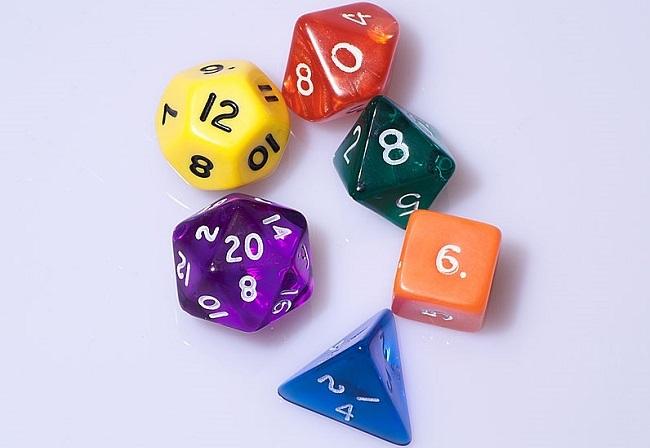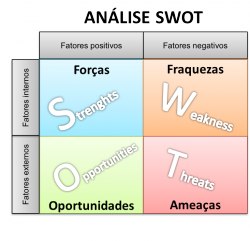RPG is the English acronym for role-playing game, a game genre in which players assume the role of imaginary characters in a fictional world.
RPG games can be played in a variety of ways. The most common are through literal acting, in which players act, talk, and dress like their characters, and tabletop RPG, the most famous (and first invented) form of roleplaying.
In any RPG mode, the stories are guided by a player called “master”, who dictates the plot, describes the scenarios, controls the enemies that other players face, etc. Meanwhile, the other players make their decisions freely according to the situations narrated by the GM.
The main features of RPG are interactivity and group work. It's very rare that players get together to play RPG competitively, since it's a predominantly collaborative game, in which players can only win if they work on set.
RPG game elements
To play RPG you need three elements: rules system, narrative and players.
rule system
RPG games are conducted through predetermined rule systems. Generally these systems are produced by companies specialized in the subject and made available on the market through books, magazines or the internet. However, nothing prevents players from creating their own rules or adapting existing ones.
Some examples of roleplaying systems are:
- 3D&T
- D&D
- Daemon
- GURPS
- MERP
- storyteller
World, setting or narrative
Another element of RPG games is the world, setting or narrative, which is the fictional context in which the characters are inserted. Like systems, roleplaying worlds can also be created and made available by companies or crafted by the players themselves. Thus, RPG games can take place in medieval, futuristic, fantastic, dystopian, realistic, etc. scenarios.
Some examples of roleplaying narratives are:
- Storm
- Vampire, the mask
- Werewolf, The Apocalypse
- Warcraft
- deadlands
system vs narrative
It is important not to confuse rule systems with game narratives. While multiple narratives are created to support a single rule system, some are adaptable to more than one. By way of example, Storm is a medieval fantasy narrative in which players can take over the identity of mages, elves, centaurs, dwarves, etc, and can be played through more than one system, such as 3D&T and D&D.
players
Players create their characters based on the rule system and the narrative being used. To do this, players fill in forms containing all of their character's characteristics, attributes, abilities and items. The sheet is constantly updated as the character evolves.

Character sheet from the D&D (Dungeons and Dragons) rules system. The sheet contains all the characteristics and values that make up the character.
game master
One of the players will assume the role of game master, who will be responsible for dictating the plot and describing in detail the scenarios the players find themselves in. The GM must act impartially towards the players and must follow the rules provided for in the system.
Another task of the game master is to control the so-called NPC (non-player character), which are the fictional characters not controlled by the players. Thus, the DM plays the supporting characters and extras found in the story, as well as the enemies faced by the players.
The GM must conduct the game so that players can act freely in the story. For this reason, the role of the GM always involves improvisation to ensure that players interact with the fictional world in any way they want, but still, the story moves on.
RPG Dice and Boards
One of the factors that add excitement and unpredictability to RPG games is the use of dice. In any system of rules, it is common for players to have to roll dice frequently to see if they have succeeded or failed in an action. For example:
“A certain player character finds himself in a dark room and needs to find the exit door. As your vision is limited, your chances of finding the door are low. The GM assigns a die roll, and if the player gets the number 1, he finds the door.”
Depending on the system of rules used, matches may require the use of different types of data. The simplest systems usually only use the traditional 6-sided dice (d6), while the more complex ones use unique RPG dice such as 4, 8, 10, 12 or 20 sides.

In RPG, dice are called according to the number of sides they have. The photo demonstrates a d4 (blue), d6 (orange), d20 (purple), d8 (green), d12 (yellow) and d10 (red).
It is common for games to also be played on boards that represent the scenario described by the GM. In these cases, miniatures are used that demonstrate the location of each player character and also those controlled by the GM. As characters move, players move figures around the board.

Ideal example of RPG board, easily adaptable to any scenario narrated by the master.
RPG Campaigns
RPGs are often played in campaigns rather than matches. This means that whenever players get together to play, they pick up where they left off last time, using the same character. This aspect reinforces the feeling of immersion and makes players appreciate their life in the game.
Dungeons and Dragons
The first RPG invented was released in 1974 under the name Dungeons and Dragons. D&D, as it is known worldwide, gave birth to the tabletop RPG gaming industry, in which, despite strong competition, it still remains the market leader.
The game debuted the mechanics of using dice, character sheets and boards. Furthermore, its turn-based battle mechanic, in which players alternate their moves with enemies to simulate real-time combat, has inspired several video games of the same genre.
electronic roleplaying
The success of traditional RPG games inspired the creation of several electronic games in the same genre. Although video games don't involve any kind of acting, the name role-playing game was kept since all other features were preserved.
Electronic RPG games are marked by the high level of freedom that players have to explore the scenario, make decisions and evolve their characters.
Some examples of electronic RPG games are:
- The Legend of Zelda
- Final Fantasy
- Skyrim
- The Witcher
- dark souls
MMORPG
MMORPG is a subgenre of electronic RPG games. The term is the acronym in English for multimassive online role-playing game, which translates as massively multiplayer online roleplaying game.
In MMORPGs, players log their characters into a server that provides an open and interactive world for millions of players around the world. As with other types of RPG games, the level of freedom is very high and characters evolve as they gain experience points.
MMORPGs are known for being “infinite games” as they are extremely interactive and do not have a fixed conclusion. In them, players get together and dictate the direction their characters will take.
Some MMORPG examples are:
- Ragnarok
- World of Warfract
- Lineage
- Perfect World
- Tibia
See too:
- MMO
- MOBA
- Cooperative games

